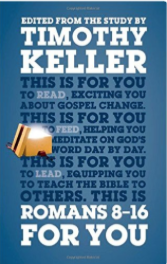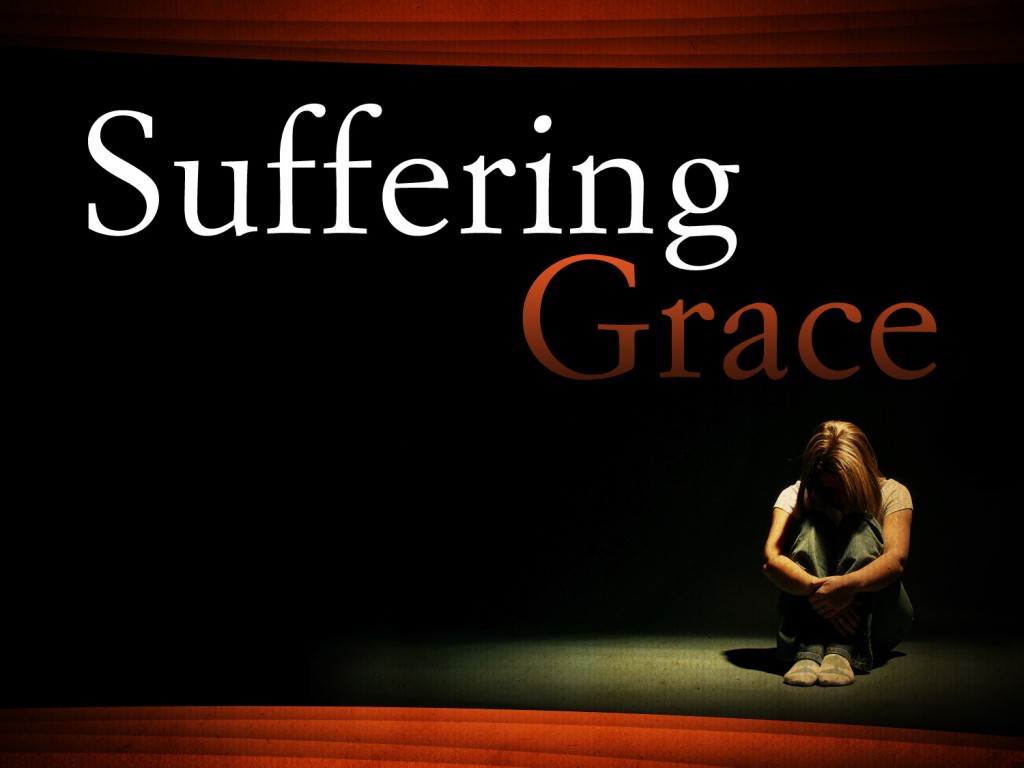One of the best books I have come across in the past several months is Tim Keller’s excellent work on Romans 8-16 (“Romans 8-16 For You” – The Good Book Company – 2015).
 Below are a few paragraphs, first posted on The Gospel Coalition’s website, dealing with the pain, suffering, discouragement and disappointment that we all experience at one time or another in this life. Keller begins this section by getting our attention with the following statement:
Below are a few paragraphs, first posted on The Gospel Coalition’s website, dealing with the pain, suffering, discouragement and disappointment that we all experience at one time or another in this life. Keller begins this section by getting our attention with the following statement:
“Sooner or later, every believer wonders if being a Christian is worth it.”
Creation’s Groans Are Not Meaningless
Many people—including, most likely, some we know—answer no. They profess faith as Christians and seek to live God’s way for awhile, but in time they find their present sufferings aren’t worth it and they fall away. But in Romans 8:18–25, Paul answers the question with an emphatic yes. In fact, he says, “our present sufferings are not worth comparing with the glory that will be revealed in us” (v. 18). Paul is saying: If you know where you are heading in the future, you won’t even entertain the idea that your current problems and pain aren’t worth it.
So what is this glorious inheritance toward which the Christian walks, sometimes with painful steps, day by day?
The apostle says, “The creation waits in eager expectation for the sons of God to be revealed” (Rom. 8:19). A glory is coming that will be so blindingly powerful that when it falls on us it will envelop the whole created order and glorify it along with us. We will bring nature with us into a renewed, restored, redeemed reality. Our sonship will be publicly revealed and acknowledged, and we will finally and fully be “conformed to the likeness of [the] Son” (Rom. 8:29). We will be as perfectly holy as Christ and as dazzlingly beautiful as he is. That’s what glory is.
Creation Is Groaning
And this is why we don’t yet enjoy this glory. When humanity fell into sin, the created order shared somehow in that fall (Rom. 8:20). It’s now “subjected to frustration.” Nature isn’t what it ought to be or what it was created to be. It’s alienated, both from us (who were meant to live in harmony with nature, as its directors, or rulers—see Gen. 1:29), and from itself. It’s become frustrated, not by its own choice, but by “the will of the one who subjected it” (Rom. 8:20). This refers to God, since the subjection was accompanied by “hope” of liberation (Rom. 8:20–21). This is why creation can wait “in eager expectation.”
For now, though, creation is in “bondage to decay” (Rom. 8:21). It’s caught in a continuous cycle of death and decomposition. It’s wonderful to see how nature’s life-giving quality continually seeks to reestablish itself, bringing new life out of death (e.g., flowers grow from the fertilizer of dead organisms). But everything in nature wears down and dies. And so nature is a realm of pain and suffering. It “has been groaning as in the pains of childbirth” (Rom. 8:22). There’s relentless pain that comes from first to last, as things decay. In this creation, no experience is untainted by pain, even if it’s only the pain of knowing the experience cannot last.
Creation Will Be Liberated
But none of this is the last word. “The creation itself will be liberated . . . and brought into the glorious freedom of the children of God” (Rom. 8:21). Instead of frustration, there will be fulfillment. When we consider the majesty and greatness of the oceans, mountains, valleys, forests, and so on now, it staggers the mind to imagine what the world will be like when it’s free to be itself! And instead of pain, there will be only joy. This is why the best metaphor for the current state of creation is childbirth (Rom. 8:22; Matt. 24:8). The pangs aren’t meaningless because the world is giving birth to a new version of itself.
This is the future—the fulfilling, renewing, joy-giving future—creation can look forward to since it’s the future God’s children look forward to. This is Paul’s answer to the question about whether our future glory makes our present sufferings worth bearing. Even creation, he observes, urges you to say yes!
We aren’t there yet, but we will be. ….
Then Keller wraps up this section by saying…
We know all our best days lie ahead and all our painful days will lie behind us then. And so, even on our worst days and in our hardest moments, we know this: It is worth it.
Editors’ note: This excerpt is adapted from a new study based on Tim Keller’s teaching, Romans 8–16 For You (The Good Book Company, 2015). Click here to read the full excerpt of this section.
(Bold highlights mine)




Leave a Reply